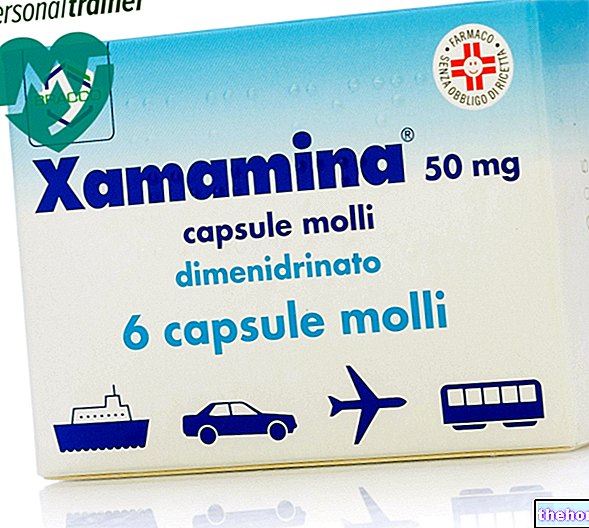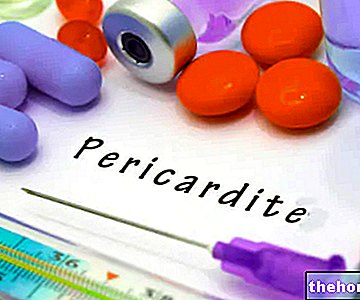Definition
As the word itself suggests, gestational diabetes is defined as a diabetic form typical of pregnancy in which - due to the marked hormonal alterations that characterize this period - there is a poor glucose tolerance, a consequence of the increase in insulin resistance. of cases, gestational diabetes does not harm either the mother or the fetus.
Causes
Scholars have not yet found a single and precise cause responsible for the manifestation of gestational diabetes; in any case, what is certain is that the pathological condition is the result of the hormonal upheaval that characterizes pregnancy, associated with the reduction of cellular sensitivity to insulin.
Symptoms
Generally, women with gestational diabetes do not complain of any symptoms; only in some patients urinary infections, mild hyperglycemia, nausea, blurred vision, polyuria, intense thirst, vomiting are observed.
- Possible complications: macrosomia (excessive development of the fetus) and increased risk of shoulder fracture for the baby (during childbirth), hypoglycemic crisis at birth, breathing difficulties, hyperbilirubinemia, hypocalcemia.
The information on Gestational Diabetes - Medicines for the Treatment of Gestational Diabetes is not intended to replace the direct relationship between health professional and patient. Always consult your doctor and / or specialist before taking Gestational Diabetes - Medicines to Treat Gestational Diabetes.
Medicines
Although there is no prevention to avoid gestational diabetes, it is recommended to undergo regular glycemic checks during pregnancy, since the risk of contracting the disorder during pregnancy increases due to heavy hormonal modulations. Furthermore, during gestation, it is advisable to correct some eating habits, follow a balanced diet (never excessively low in calories) and exercise regularly.
In the case of an ascertained gestational diabetic diagnosis, it is recommended to self-monitor the glycaemia: this practice is useful for the woman to avoid important glycemic alterations. A balanced diet, specially designed for each single pregnant woman, is essential to keep blood sugar under control, as well as ensuring (in most cases) a risk-free pregnancy.
In the event that dietary correction is not sufficient to keep blood sugar within "physiological" levels, it is possible to intervene with insulin-based drugs: oral hypoglycemic agents - elective drugs for the treatment of type 2 diabetes mellitus - they cannot be used to treat gestational diabetes, as they could cause serious discomfort to the fetus. Rather, it is recommended to take insulin by injection under the skin. Typically, three types of insulin are used to treat gestational diabetes, sometimes together: zinc insulin, regular insulin, and isophane insulin.
Some countries allow the oral administration of some hypoglycemic drugs also for the treatment of gestational diabetes, such as metformin (eg. Glucophage, Eucreas, Efficib, Avandamet, Glibomet)
The following are the classes of drugs most used in the therapy against gestational diabetes, and some examples of pharmacological specialties; it is up to the doctor to choose the most suitable active ingredient and dosage for the patient, based on the severity of the disease, the state of health of the patient and his response to treatment:
- Insulin Zinc (eg. Monotard): this is an "intermediate-long-acting insulin, which must be injected 3 times a day and provides 30-50% of the daily insulin requirement. Although the dosage of the drug must be customized to obtain optimal glycemic regulation, in general, the indicative dose for treating gestational diabetes is between 0.5 and 0.8 units / kg per day. The dose may increase up to 2.5 units / kg per day in the case of marked insulin resistance.
- Isophane insulin (eg. Protaphane, Humulin I, Actraphane, Humulin, Mixtard): the drug has an "intermediate action, and should be administered 1-3 times a day, depending on the severity of the condition and glycemic levels. The dosage should therefore be used. established by the doctor; indicatively, the dose can vary from a minimum of 0.5 units / kg per day, up to a maximum of 2.5 units / kg per day. Isophane insulin is often alternated with regular "insulin" ”(Or normal) and is often injected 1-3 times a day, 30-60 minutes before meals, based on the more or less marked glycemic alteration.
It has been observed that in a woman affected by gestational diabetes, the risk of contracting type 2 diabetes mellitus after a couple of years from childbirth is very high; to avoid this complication, it is highly recommended to follow a correct diet, low in sugar. rich in fiber and whole foods, which should always be accompanied by constant physical exercise.
Furthermore, it has been observed that breastfeeding and maintaining the ideal weight are two very important rules for the prevention of type 2 diabetes mellitus, especially after contracting gestational diabetes.
Other articles on "Gestational Diabetes - Medicines to Treat Gestational Diabetes"
- Gestational diabetes: risks, prevention, treatment
- Gestational diabetes
- Diet and Gestational Diabetes




























